The man in charge of Britain's biggest supplier of own-label dairy products to retailers has a lot to learn about UK supermarkets. Arla Foods chief executive Peter Lauritzen says he is still coming to terms with the idea of grocery shopping at any time, day or night, and is surprised about the ubiquity of the bogof.
But when it comes to the white stuff, the Dane has enormous experience. He's been working for Arla for 37 years, and began his career at a small trading outpost of the Danish-Swedish dairy co-operative, in Cheshire of all places.
Lauritzen was parachuted in to the top job at the Leeds-based processor in April this year, following a buyout by Danish-Swedish parent company Arla amba. It bought back the 49% of the company that it didn't already own for nearly £213m, and, as soon as the deal was closed, incumbent chief executive Tim Smith and finance director Nigel Peet left. Lauritzen doesn't have a bad word to say about his predecessor, who he says "seems to have left a well-run company", but he maintains it was natural for Arla to appoint a Danish CEO.
Lauritzen's first job has been to draw up a business plan, taking into account the fact it is fully owned by farmers again. The strategy will remain a secret until it is presented later in the autumn, but it is already clear there will be no lesser focus on generating profits. Arla is still all about making money - whether for City investors or farmers.
On the commercial side, there is still room for rationalising the UK-based assets, says Lauritzen. In the past three years Arla has invested £76m, built two new dairies and closed a handful of inefficient sites, but he doesn't rule out further investment in processing. "We could build a new dairy here, but it needs further evaluation," he says. "When we bought the shares we said we were prepared to invest in product and infrastructure."
There is also scope for exploiting synergies between the Danish and British businesses, although Lauritzen refuses to commit to any detail on which plants would go and which would stay.
Arla remains as committed to its branded offer as ever, he says, and with Lurpak generating sales of £168m, its extended shelf-life milk brand Cravendale hitting £75m and Anchor worth £98m, that's no surprise. Cravendale is currently the focus of a £5m campaign and has grown sales 30% since the start of the year. "Cravendale is a big success story," he says. "We'll be looking to extend the brand with new products. In the short-term, that means sticking to milk, but we are looking at ways of using the brand on other products."
Brand extensions are an easy win for Arla, and it is looking to extend all its key brands. While no firm decisions have yet been made, Lauritzen makes it clear that health will be a key driver.
He is bullish about sales prospects in the UK although cautious about committing to Dairy Crest's view that annual dairy sales could be grown by £2.4bn over the next five years. "The population here is not consuming the same amount of dairy produce as in the rest of Europe," he says. "The UK is lagging behind, but I see that as an opportunity for, not a barrier to sales."
Another opportunity lies in the "turbulent" state of the world dairy market, where prices have doubled on skimmed milk powder and butter since the start of the year. For companies with dairy brands, such as Arla, high input prices are a headache, because it takes time for the retail price to inch up in compensation.
But Lauritzen is unperturbed. "Though these high prices are unusual, I believe that, in the long-run, added value production is the best strategy," he says. "The bar will be lifted after this on prices but I think this is positive for the industry."
Arla dries a small quantity of milk at its Northallerton commodity plant, but this is not an end in its own right - just a way of sopping up the excess milk from the spring flush. No effort has been made to shift milk into drying to take advantage of the bull market on dairy commodities, he says. "When you operate in branded products, you can't just shift milk around like that. There's no spare milk and no spare capacity for drying."
Spare milk is becoming increasingly difficult to find in the UK, as a combination of low milk prices, rising feed and energy costs and the rigours of a damp summer take their toll on farmers' milk production. But Arla reckons it has lost less milk than the industry's average 8% fall. And Lauritzen is hopeful that the company's efforts to shift farmers onto an autumn calving pattern will help smooth the traditional November trough. "Milk has dropped more than we anticipated, but we are watching returns very closely and expect to see some bounce-back in the coming weeks."
Nonetheless, he's upbeat about pricing and prospects for farmers. "There are a lot of positive things happening in milk prices - there's no particular structural problem in the industry." He has already announced that British farmers will be invited to buy into Arla Foods UK, making it a co-op in the true sense for the first time. The fact that farmers opted to hang onto their 5% stake in the business when it was bought back by Arla amba is a sign they will be keen to get involved in the business. That stake was converted into a loan note.
At a time when keeping farmers happy and supplying milk is critical to processors, Lauritzen is adamant that Arla will not slip down the pricing league tables to join the UK's other co-ops near the bottom. He says Arla is a much stronger business than competing co-ops, which don't have anything approaching Arla's enviable brand portfolio.
Nor would future members have to hand over a proportion of the revenue from every litre of milk they supply to provide capital for the business, as other co-ops do. "We're extremely well established, so I don't think at this stage we would have to ask farmers to participate," Lauritzen says.
Even on the own-label front, the processor is in a strong position to pass back good returns to farmers. Its Asda milk comes from a ring-fenced supply group, and Tesco has followed suit. Asda pays an extra penny on top of the Arla price to its suppliers. And Tesco farmers are on a guaranteed 22ppl contract. That price is reviewed every six months, and is widely expected to increase to 25ppl or more this month.
Arla may have said goodbye to its corporate investors, but Lauritzen makes it clear financial performance won't suffer. In fact, Arla could offer UK farmers their best chance yet to get a slice of branded dairy action.n
For more on dairy, see the 68-page Dairymen supplement free with this issue
Q&A
How would you describe your management style?
My role is being a coach, guide and support for the Arla leadership team. I will be in front when it is necessary to set goals and targets and maintain the right focus for the business group in line with our strategy. Information should be shared widely and it is important that responsibility is delegated so colleagues are able to act on their own initiative
What do you do to relax?
I enjoy spending time at home with my family as well as playing golf and going to the cinema.
What's your favourite cuisine?
Definitely Italian. However my favourite food is potatoes, of any variety. There is a running joke in our family that my wife eats rice with everything because of her South Korean origin but she always cooks me potatoes for my evening meal.
How do you find living in the UK again after so many years?
It is nice to be back in the UK after 35 years and I'm now settling in to my new home, after spending many weeks in hotels. I like the English way of life, particularly the good beer! One of the major differences between the UK and Denmark is that supermarkets here are open 24 hours a day.
Do you eat your three items of dairy a day?
Yes of course, in particular cheese and Cravendale, which I have started drinking since living in the UK. I think it is a great product.
When you retire, what do you plan to do with your time?
Travel, play golf and sail. I enjoy sailing but I haven't had many opportunities so far this year because there isn't much water in Leeds.


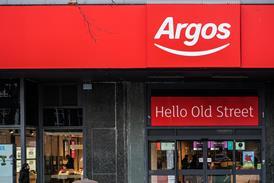
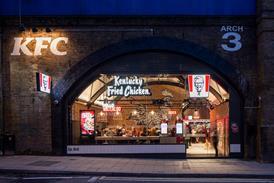
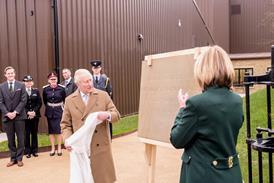


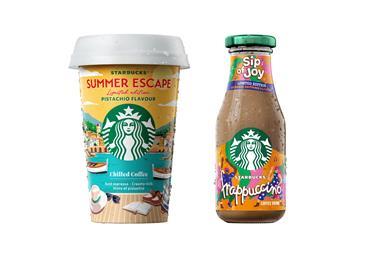
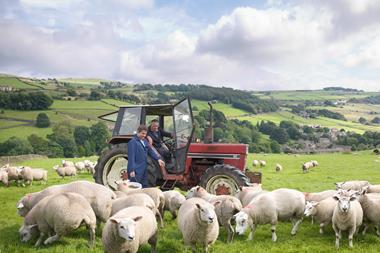

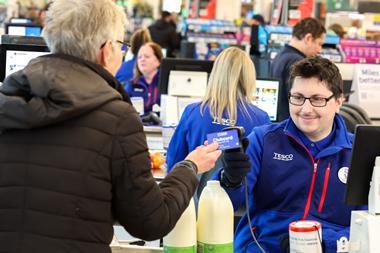

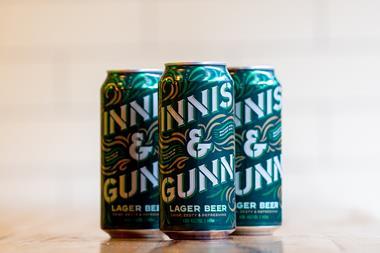
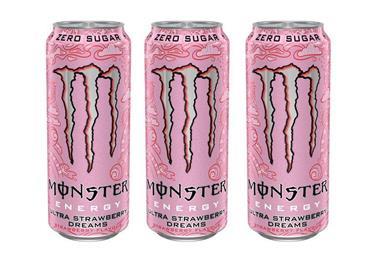


No comments yet